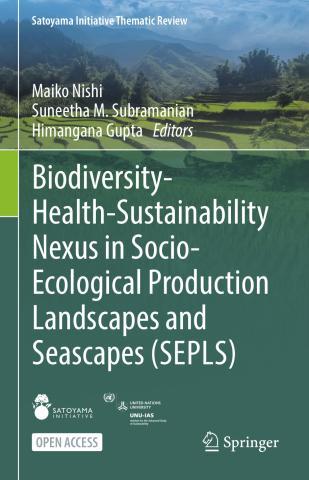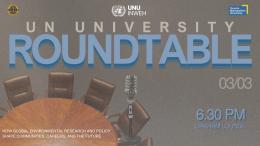A new UNU-IAS open-access book examines the links between biodiversity, health, and sustainability, focusing on how local and traditional knowledge can contribute to the sustainable management of natural resources, biodiversity conservation and restoration, and good health for all.
Titled Biodiversity-Health-Sustainability Nexus in Socio-Ecological Production Landscapes and Seascapes (SEPLS), the book compiles case studies from around the world provided by members of the International Partnership for the Satoyama Initiative (IPSI). It offers insights for the upcoming three-year thematic assessment by the Intergovernmental Science-Policy Platform on Biodiversity and Ecosystem Services (IPBES) on the interlinkages between biodiversity, water, food, and health — known as the nexus assessment.
Co-editor Maiko Nishi (Research Fellow, UNU-IAS) said “these case studies illustrate how SEPLS management can be a valuable tool to enhance both human and ecosystem health. The book comes at a critical time as we face accelerating biodiversity loss, which is also one of the main drivers underlying the increasing risk of future pandemics.”
This book is part of a series published over the past six years, the Satoyama Initiative Thematic Review. IPSI is a partnership comprising 283 member organisations (as of June 2022) dedicated to realising societies in harmony with nature. UNU-IAS hosts the secretariat of IPSI, providing a unique global platform for exchanging views and experiences between these organisations and fostering synergies in implementation of their respective activities.
The book is available to download from UNU Collections.


